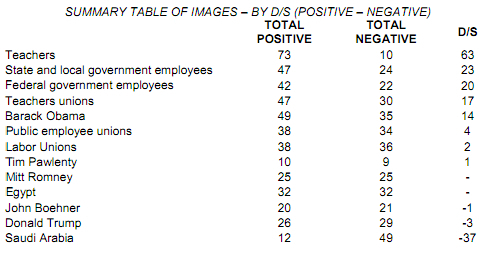Matthew Yglesias's Blog, page 2403
March 3, 2011
The Conservative Vision

Peter Suderman explains his problem with the Obama administration's plan to offer accelerated implementation of state flexibility around the Affordable Care Act:
the supposed flexibility the opt-out provision gives the states to innovate is fairly limited. Theoretically, they can get out of the mandate. But to do so, they have to submit a proposal that is judged to cover the same number of people, for the same cost (or less), with the same benefit and coverage levels as mandated in the law. That will make it easier for states–like Sen. Bernie Sanders' home state of Vermont–to experiment with, say, single payer at the state level. But the high bar for coverage set by ObamaCare means that proposals that would rely on higher levels of cost-sharing, on increased use of catastrophic insurance, on allowing consumers to choose what benefits they actually want to pay for are less likely to pass muster.
Brian Beutler translates: "so this opt-out plan is useless if what you want to do is provide crappy benefits to the people in your state."
It strikes me, though, that this would be a productive direction for the debate to take. If you define the minimim benefits package more generally, you need higher taxes. Conversely, if you want to cut taxes for the rich, you need the non-rich to have stingier health care plans. This kind of debate—left wants high taxes to offer generous benefits, while the right wants stingier benefits to make lower taxes affordable—is very much "normal" politics and you never see an end of it. Here, suddenly, apocalyptic rhetoric about socialism and pulling the plug on grandma is gone. You just have a basic taxes vs spending, progressive vs regressive debate of the sort that exists on tons of other issues.


Poll: Public Wants Priority On Job Creation, Prefers Deficit-Closing Via Tax Hikes
Personally, I prefer coffee to tea and the voters agree:
And although a combined 22 percent of poll-takers name the deficit/government spending as the top issue the federal government should address, 37 percent believe job creation/economic growth is the No. 1 issue. [...]
The most popular: placing a surtax on federal income taxes for those who make more than $1 million per year (81 percent said that was acceptable), eliminating spending on earmarks (78 percent), eliminating funding for weapons systems the Defense Department says aren't necessary (76 percent) and eliminating tax credits for the oil and gas industries (74 percent). The least popular: cutting funding for Medicaid, the federal government health-care program for the poor (32 percent said that was acceptable); cutting funding for Medicare, the federal government health-care program for seniors (23 percent); cutting funding for K-12 education (22 percent); and cutting funding for Social Security (22 percent).
There's also this, which is interesting:

If I'm a House Republican representing a district that Obama won in 2008, the fact that the president is about a millon times more popular than John Boehner is going to give me pause about picking Boehner's side in a high-profile fight.


Unorthodox Monetary Policy Worked Nicely In Sweden; Will Anyone Notice?

(my photo, available under cc license)
Way back on August 27, 2009 the FT reported:
At issue was Sweden's embrace of unorthodox monetary policy, specifically their decision to cut the interest rate paid on bank reserves below zero. In other words, they were charging a penalty. In the USA, by contrast, the Federal Reserve actually raised the interest rate paid on reserves.
Yesterday, the FT reported:
That's the fastest growth Sweden has ever recorded. Ever. They've already tightened monetary policy from where it was in the depths of the crisis and, naturally, are poised to do some additional tightening. So are bankers actually watching this? It seems to me they're not. When Sweden did something unorthodox, people said the world's central bankers were going to watch. It worked. It worked really really well.
But is anyone paying attention? Here in the United States, inflation continues to be well below the trend level, we have tons of idle workers, and yet all you ever hear about is the possible need for tightening. Why not at least cut the interest on reserves back to zero?


March 2, 2011
Endgame
Driving in your car:
— New iPad making me sad I have a lame old iPad 1, but us early adopters are the unsung heros of the economy.
— Shanghai metal sorters.
— Park Slope petitioners making explicit what's often implicit.
— Wisconsin voters launch recall effort against eight state senators.
— Fox News suspends contributors.
— I wonder who sent me a phishing email today while pretending to be the Oregon department of education.
Dum Dum Girls cover "There Is a Light That Never Goes Out".


The Gaffe Effect

Mark Kleiman, reflecting on Mike Huckabee's apparent belief that Barack Obama grew up in Kenya, says "That even Huckabee fell into this trap in the context of a friendly interview with a right-wing talk jock suggests a serious problem for the Republicans as they attempt to re-take the White House in 2012 or 2016."
To me, this is mostly a reminder that people overrate this kind of thing. Recall that Barack Obama said affection for Jesus Christ and firearms is a form of false consciousness. It turned out that his self-described spiritual mentor was a black nationalist peddling nutty AIDS conspiracy theories who thinks 9/11 was "America's chickens coming home to roost." And Obama not only won, he won easily against a decorated war hero. Then again, the hero in question was so rich and out of touch that he couldn't even keep track of how many houses he owned! In other words, nobody gets it through a long campaign season without screwing some things up, but either voters don't care about this stuff or else it offsets. Obama's re-election potential is almost certainly going to be a function of economic conditions rather than how gaffe-prone the Republican nominee is.


Interests and Ideas

Well-said from Jonathan Chait on the idea that you can draw a rigorous distinction between the Koch Brothers' ideological commitments and their self-interest:
It seems to me that the line between "ideas" and "interests" is, at best, a lot less clear than Balko makes it out to be. Libertarianism is an idea with many possible interpretations. The notion that corporations should be able to pollute the commons with harmful greenhouse gases at no cost whatsoever is just one such interpretation, and not necessarily the most natural one. Likewise, the notion that reducing the size of government is best achieved by, or even rationally related to, debt-financed regressive tax cuts is also highly contestable. Yet these are interpretations that are very congenial to the Koch brothers' bottom line, and they're also the interpretations promoted by Koch-financed groups. So this presumed dichotomy between their narrow interests and their belief in libertarian ideas seems to be a pretty shaky concept.
To emphasize the audacity of the Kochs' intellectual aspirations, not that it says in the Road to Serfdom that you need "direct regulation by authority" of air pollution unless you can get cap-and-trade system off the ground. Similarly, it was Milton Friedman who coined the phrase "to spend is to tax", thus rejecting the notion that debt-financed tax cuts are an effective means of reducing the size of government. Those guys have Nobel Prizes. That the conventional wisdom in American right-wing politics disagrees with Hayek and Friedman has a great deal to do with the influence of wealthy individual donors and fossil fuel interests, prominently including the Koch brothers.


Systematic Misinformation About Responsibility
I think public ignorance about political facts probably isn't that big a problem. But I worry more about the idea that people don't know who's in charge of what. Feelings about George W Bush and Barack Obama seem to drive state legislative elections and my intuition is that people don't realize how small a role the federal government plays in education policy.
Bryan Caplan uses survey data to test this theory and finds that it's quite true:
Systematically biased attributional beliefs turn out to be common and large. Fully 14 out of 16 survey questions exhibit statistically significant biases. Compared to experts in American politics, the public greatly overestimates the influence of state and local governments on the economy, the president and Congress on the quality of public education, the Federal Reserve on the budget, Congress on the Iraq War, and the Supreme Court on crime rates. The public also moderately underestimates the influence of the Federal Reserve on the economy, state and local governments on public education, and the president and Congress on the budget. While we are open to the possibility that non-cognitive factors explain observed belief gaps, controlling for demographics and various measures of self-serving and ideological bias does little to alter our results. A full set of controls reduces the absolute magnitude of the raw belief gaps by less than 13% – and leaves the number of statistically significant lay-expert differences unchanged.
There's a lot you could say about this, but for starters I think the political media could do a little soul-searching over this. It seems to me that the news stories I read about presidential campaigns and clashes in congress very much engage in these errors. People routinely cover state politicians' proclamations about economic growth strategy without noting state government's relative impotence in this area, the Fed is invariably slighted in stories about political fights over the national economy, editors' story selection choices give a very misleading view of what kinds of issues the Supreme Court decides, etc.


The Cultural Meaning of Pizza Hut
Deborah Fallows explains the prestige of fast food culture in China:

The newspapers report about the vogue of fat camps right next to the stories of internet addiction camps. Also in vogue are fast food places, of course. But McDonald's, KFC, and PIzza Hut are more than just exotic and efficient; they're upscale. Whenever we frequented Pizza Hut, we had to remember to make reservations, as it was one of the places to dress up and go for special family dinners. I'm not sure if McWeddings have moved from Hong Kong to the mainland yet, but they are mentioned with interest in the Chinese press.
What caught my eye this week were the giant posters advertising Fatburger! Coming Soon!, a franchise that improbably boasts Miami, Riyadh, Las Vegas, and many other international venues. This was splashed along the walls inside a high-end new mall, right next to Fendi and Shiseido.
This is a good concrete manifestation of the reality that for all its recent success, China is still quite poor. Chinese people and Americans both like Taco Bell, but nobody in America thinks of Taco Bell as aspirational. Indeed, Taco Bell marketing is oriented around the idea of trying to convince Americans that aspirational dining is overrated and the idea of eating an upscale meal at Taco Bell is broad satire.


Improving Education With Better Sorting

Dana Goldstein reprints an email from Jennifer T sticking up for smaller class sizes. I don't really think there's a ton to be said about the class size issue—an effective teacher could be more effective at the margin on a per capita basis if she has fewer students, but an effective teacher could also teach more kids at the margin if she had more students.
But Jennifer's micro-explanation of the benefits of small class size is provocative:
This teacher believes that class size is tied with improving teacher education as the number one issue in education today. Really good teaching is differentiated teaching—meeting each and every kid where they are and raising their level of work bit by bit, day by day. Only by knowing each kid, conferencing with each kid and providing instruction to each kid how he or she best learns can we honestly close the achievement gap. We cannot do this with 26 second graders and only one teacher. It is impossible. Even for excellent (Highly Effective, even!) teachers in well-funded schools with amazing PTAs that pay for full-time assistants who are graduate students of education. Not with reading specialists and ELL teachers and all sorts of other personnel.
I think this points to the most underrated virtue of school choice—differentiation. My girlfriend has a strong preference for burritos over sandwiches, whereas I like a good sandwich. Nobody is "right" or "wrong" about this, but the fact that DC provides places to buy sandwiches and places to buy burritos is a welfare enhancing measure. If we consolidated all the sandwich and burrito vendors into a single monopoly provider then even under the most utopian assumptions about the quality of the sandwiches and burritos offered, you'd be stuck with a large level of inefficiency. It the people working at Chipotle and Potbelly's were constantly switching back and forth from burritos to sandwiches, their output of meals per hour would plummet.
A student's not a takeout lunch (obviously) but if it's really true that "good teaching is differentiated teaching" then life should get easier for teachers if more of the differentiation happens on the front end. Schools would offer a narrower range of products, but students would have a wider range of schools to choose from. I would, personally, absolutely hate it if my job required to me to somehow try to craft a blog that was appealing to whatever random subset of readers happened to come through the door. I always try, of course, to grow my audience. But the idea is to specialize—I simply take for granted that the overwhelming majority of English-speaking people in the world aren't going to read this site, and try to create value for a relatively narrow niche, secure in the knowledge that other people will read other things.


Taxing Our Way To Shorter Commutes

KW writes:
Following up on your post about George Will and automobile subsidies, I want to call your attention to a brand-new set of ads in the Union Station Metro station. They're sponsored by what looks to me like a new Astroturf group called Bankrupting America. The billboards read, "Cutting your commute time is wishful thinking. Cutting government spending shouldn't be." The key point they're trying to make, of course, is in the second sentence, while the first sentence appears to be meant as a cute throwaway meant to get the attention of frustrated commuters. But isn't this a perfect illustration of the mainstream Republican view – or as you put it, "the identity politics of middle aged white suburban conformists" – that endless sprawl and unbearable traffic reflect an immutable state of nature, unaffected by government policy? These ads struck me as the apotheosis of that strain of politics.
The group is, indeed, just another rightwing astroturf group. They're allegedly obsessed with the budget deficit and the national debt, but like Scott Walker and Chris Christie and all Republicans in fact favor lower revenue and higher deficits. Which is fine, there's certainly a large low revenue constituency in the United States of America. But neither the media's unwillingness to accept the fact that the low tax lobby isn't concerned with budget solvency is perennially annoying.
Meanwhile, the idea that cutting commuting times is futile is ludicrous. You could, in fact, drastically reduce commuting times and reduce debt through higher taxes, aka "congestion pricing." The way the current system works is that space on a smooth flowing road in rush hour is valuable. But it's free to occupy that space. Consequently, too many people try to occupy it. If the Lakers didn't charge admission to go to basketball games, the Arena would be overcrowded. And if we don't charge to take up space on a useful commuting thoroughfare, the thoroughfare will be overcrowded. Levying taxes on people who want to take up valuable space will reduce overcrowding and provide some much-needed revenue.


Matthew Yglesias's Blog
- Matthew Yglesias's profile
- 72 followers



